INSTITUTIONAL AND ORGANIZATIONAL INFORMATION
Corporate Governance
Definition
Corporate governance is essential to ensure integrity across all our operations. At Air Europa, part of the Globalia Group, we strive to implement and maintain best governance practices to promote efficient and ethical management.
The governance model is a sensitive task that requires constant updates and improvements to all mechanisms and bodies which, with proper design, can significantly enhance Air Europa’s strategy and results.
Corporate governance at Air Europa has become a central part of our corporate strategy. The current and future context of the organization — from the perspective of our purpose, Strategic Plan, and Sustainability (ESG) commitments — makes it necessary to redefine our approach to Corporate Governance.
Structure
Our governance structure is designed to foster effective and responsible decision-making.
The roles of Chairman and Chief Executive Officer are held by two different individuals.
The governing and administrative bodies of Air Europa Holding are guided by a set of rules and principles that safeguard the proper functioning of the company:
- Bylaws.
- Internal Corporate Governance Rules.
- Vision and Values.
- Code of Ethics and Conduct.
- Corporate Policies.
- Other codes, processes, and internal procedures required or recommended by sectoral regulations.
- Board of Directors Regulations.
- Advisory Committees Regulations.
At the same time, ensuring Air Europa’s success in the short, medium, and long term also requires a strong commitment from its leaders to reinforce a culture of compliance that has been followed over the years. Therefore, Air Europa’s management model consists of a set of policies, processes, procedures, and guidelines — including several integrated systems — aligned with international management standards:
- ISO 9001 – Quality Management System
- ISO 14001 – Environmental Management System
- EMAS Regulation (Eco-Management and Audit Scheme)
- ISO 27001 – Information Security Management System
- ISO 45001 – Occupational Health and Safety Management System (formerly OHSAS 18001)
- IOSA (IATA Operational Safety Audit)
- In addition, since 2007, Air Europa has undergone an annual audit verifying its Greenhouse Gas Emissions.
Governing Bodies:
- General Shareholders’ Meeting
- Board of Directors
General Shareholders’ Meeting:
The sovereign body of the company, in which all its members represent the shareholders.
Bylaws
Access all information about the Bylaws.
Board of Directors
This body is responsible for the governance and management of the company through the approval of corporate strategy and general policies, as well as the supervision and consideration of matters of particular importance to the company and its key stakeholders.
Its duties and responsibilities include those required by the Spanish Capital Companies Act and other applicable regulations. Among others, it must define and oversee the implementation of the company’s business strategy, ensuring alignment with its long-term objectives.
It must also ensure compliance with transparency standards by properly reporting on environmental, social, and governance matters; supervising senior management activities; evaluating their performance; and ensuring that established policies and objectives are followed. Furthermore, it manages risks, oversees the risk management system to ensure potential risks are properly identified, assessed, and managed, and guarantees that the company complies with all applicable laws and regulations, as well as with the established ethical and conduct principles.
The Board consists of five members plus a non-director secretary. It delegates daily management to the Chief Executive Officer and the Executive Committee.
Committees
The new Corporate Governance framework has focused on the creation of Advisory Committees and on defining their relationship with the Chief Executive Officer of Air Europa Holding, as well as with the members of the company’s Executive Governance Committee.
A set of Committees has been designed to cover various areas and functions (Economy and Audit, Talent, Sustainability, and Safety), structured to operate efficiently and act as a driving force for the company’s growth and competitiveness. In our current environment, having qualified opinions is essential and enriching, as it fosters synergies and shared knowledge that benefit both the organization and each of its members.
The Advisory Committees are characterized by the heterogeneity and diversity of their members in terms of profile, age, and gender.
The Advisory Committee is a non-regulated body made up of distinguished professionals who support the CEO and the Executive Committee. It serves multiple defined purposes, all aimed at accelerating strategic growth and improving competitiveness through expert guidance.
The Advisory Committees are composed of highly respected individuals from different sectors of economic, social, and professional activity, contributing ideas, innovation, and strategic vision. Their main goal is to provide the company with an external perspective and a diversity of thought that becomes a valuable complement to the organization.
Organizational Chart
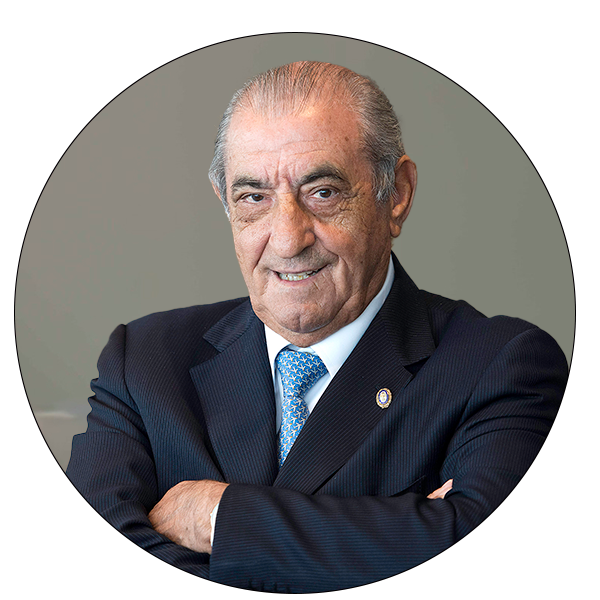
Executive Chairman
Juan José Hidalgo
Juan José Hidalgo Acera is the Chairman of Globalia, the group to which Air Europa belongs, and also serves as a Director of the aforementioned companies. He undertook his first project in the transport sector at the age of 19, after emigrating to Switzerland. In 1972, he chartered his first passenger plane to Zurich to transport Spanish emigrants. In 1991, a group of investors led by Hidalgo acquired the airline Air Europa, which began operating scheduled domestic flights in 1993, thereby breaking the existing monopoly in Spain. Among the numerous awards and honors he has received, the Gold Medal for Merit at Work, granted by the Council of Ministers in 2006, stands out.

CEO
Richard Clark
He joined the Interline department in 1987 and three years later moved to Operations, where he was responsible for daily operations and flight planning. He took on the role of Commercial Director in 1992, just a year before the start of regular domestic flights. For 24 years, he successfully led the Commercial, Planning and Development, and Deputy Commercial General Management departments. In 2016, he was appointed Deputy General Director of Air Europa, a position he held for five years before assuming the role of General Director in 2021.

Non-Executive Director
María José Hidalgo
Her professional career has taken place in the Tourism and Aviation sector. She joined Air Europa in 1991, when a group of Spanish investors led by Juan José Hidalgo acquired the company. In 1996, she assumed the position of Deputy to the General Manager, and in 2003 she was appointed General Manager of the airline. Currently, María José Hidalgo serves as a Director of Globalia and Air Europa. In addition, she has been a member of the Advisory Board of Turespaña, the Tourism and Cultural Foundation of the Balearic Islands (Fundatur), and the Executive Council of Exceltur, the Alliance for Tourism Excellence. She has also been part of the Governing Board of the International Air Transport Association (IATA).
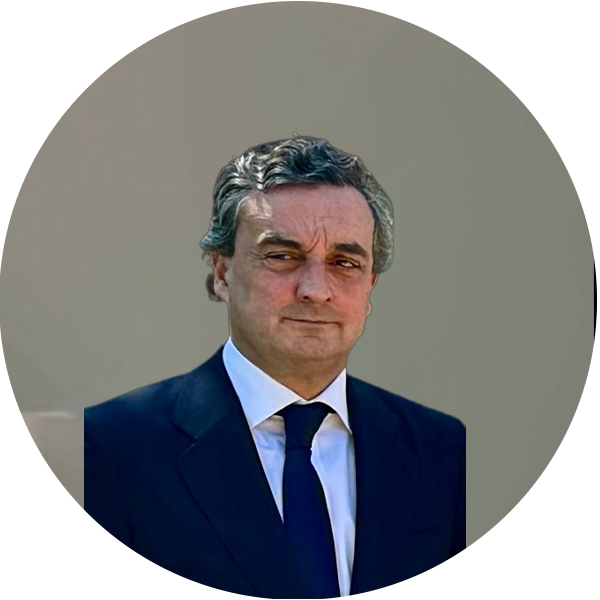
Board Secretary
Ramiro Campos
He holds a Law degree from the University of the Basque Country and a Master’s in Legal Consultancy from the Instituto de Empresa. He joined the Globalia Group as Head of Legal Affairs at Viajes Ecuador in 2001 and became part of the Group’s legal team in 2003. Later, in 2009, he was appointed Director of Globalia’s Legal Services, a position he currently holds. In addition, he serves as Non-Director Secretary of both the Globalia Board of Directors and the Air Europa Board.

Directora Sostenibilidad
Rosa Nordfeldt

Director Operaciones
John Baiget
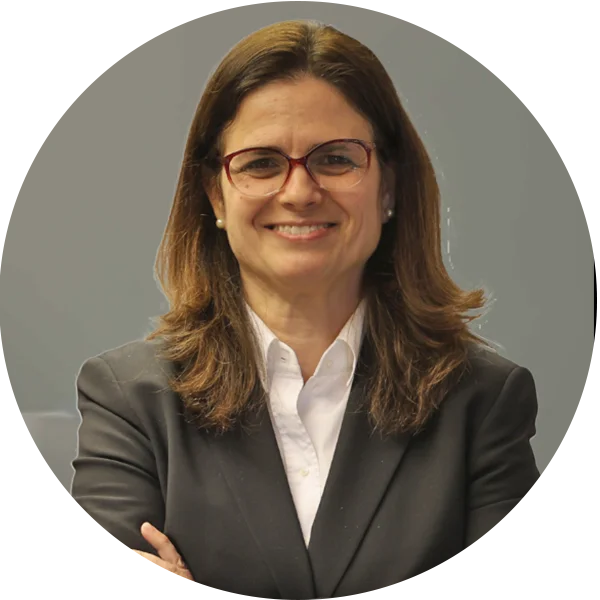
Dir. Finanzas y Administración
Isabel Vives

Director Mantenimiento
Pedro Macías

Dir. Personas, Cultura y Talento
Antonio de la Fuente

Dir. Handling y Planificación
David Fuster

Dir. Combustible y Seguros
Judith Connaty
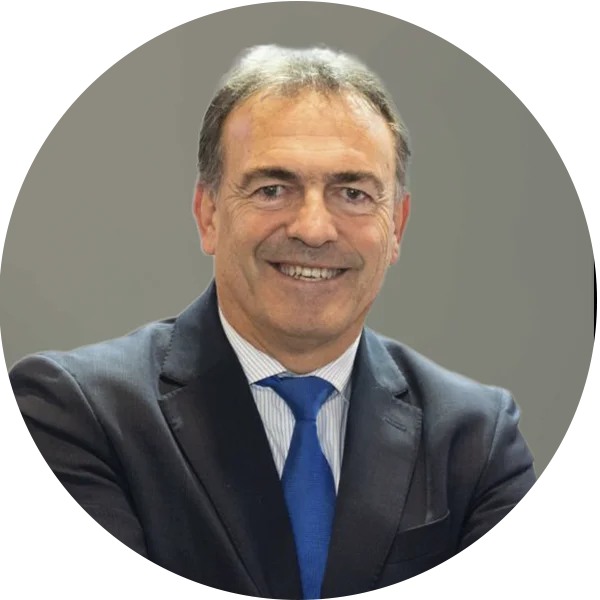
Dir. Comercial y Ventas
Imanol Pérez

Director de Sistemas
Víctor Herrero

Dir. Marketing, Producto y Cliente
Rafael Brull
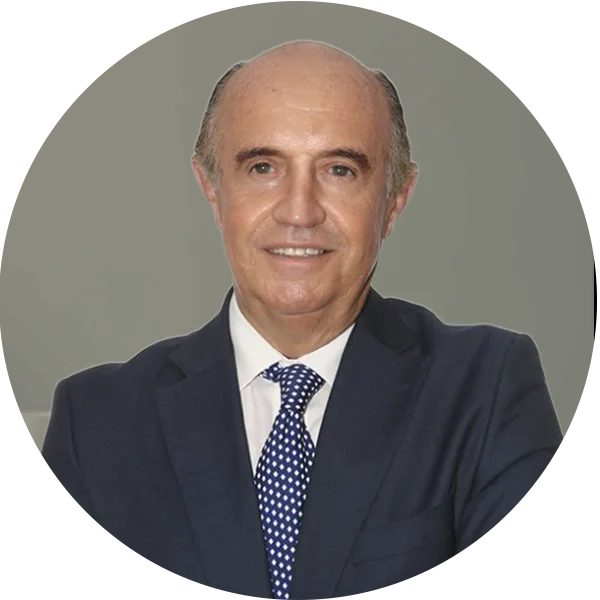
Director RRC & RS
José Antonio Salazar

Seguimiento Diario
Mario Hidalgo

Asesoría Jurídica
Francisco Ocaña
Retribuciones del consejo
As stated in the Audit Report of Air Europa Holding, S.L. and its subsidiaries, during the 2024 fiscal year, the Directors and Senior Management received remuneration totaling 726 thousand euros (707 thousand in 2023). No advances or loans have been granted, nor have any obligations been assumed on their behalf as guarantees. Likewise, the Group has no pension or life insurance obligations with respect to former or current Directors and Senior Management of the Company.
ECONOMIC INFORMATION
Financial Information
Annual Reports
Download the Annual Accounts Audit Report here.
*Published July 2023
*Published July 2024
*Published September 2025
Financial Support Information
General Information
On November 3, 2020, the Council of Ministers authorized the Managing Board of the Solvency Support Fund for Strategic Companies to approve the temporary public support requested by Air Europa Holding, S.L.U., Air Europa Líneas Aéreas, S.A.U., and Aeronova, S.L.U.
The aid, totaling 475 million, was channeled through a participating loan amounting to 240 million euros and an ordinary loan of 235 million, both instruments contemplated in the Ministerial Order of July 23 that published the Council of Ministers’ agreement establishing the operation of the fund, endowed with a total of 10 billion euros.
This fund was approved by the Government in July with the aim of providing temporary public support to strengthen the solvency of non-financial companies affected by the COVID-19 pandemic that are considered strategic for the national or regional productive fabric. The authorized operation was the first approved and charged to this fund since its inception. The companies benefiting from this temporary public support will have a maximum period of six years to fully repay the loans they receive. The interest rates set for the participating loan are those contemplated in the annex to the Council of Ministers’ agreement of July 21 and in the European Commission’s Temporary Framework.
The authorization of this operation completes the procedure governing the operation of the Solvency Support Fund for Strategic Companies.
Transparency
The total authorized aid was executed in different disbursements over time*:
| Instrument | Amount | Date |
|---|---|---|
| Participating loan | 240 million | November 11, 2020 |
| Ordinary loan – 1st tranche | 100 million | March 25, 2021 |
| Ordinary loan – 2nd tranche | 135 million | May 7, 2021 |
*Published: November 2020. Updated: September 2025
The purpose of the funds has been to prioritize the continuity of the company’s operations while demand begins to recover, and to support, as far as possible and depending on the evolving situation, investment plans in both ecological transition (aimed at reducing CO2 emissions) and digital transition. In addition, a significant percentage has been allocated to refund passengers affected by COVID-19-related flight cancellations.
The following table shows the relative weight of each category in the total amount.
| Category | In % |
|---|---|
| Costs related to operational activity | 73% |
| Non-operational payments* | 27% |
*Includes, among others, refunds, payroll, taxes, social security, ecological and digital transition, financial expenses, etc.
Ecological Transition Plan (ETP)
One of the actions with the greatest sustainability impact within the Ecological Transition Plan was the fleet unification, completed in July 2023. This unification was achieved in part thanks to the strategic agreement reached in 2022 with Boeing and two of the most important lessors in the market. Together with the early termination of certain Embraer 195 aircraft lease contracts, this made it possible to operate an exclusively Boeing fleet, covering both short/medium and long-haul routes. These agreements have enabled the incorporation of new Boeing 787 Dreamliner and 737 MAX aircraft. In May 2025, Air Europa added its first 737 MAX unit to the fleet, becoming the first Spanish airline to operate this aircraft — the most advanced in its category for short- and medium-haul flights. Following the aircraft delivered in May, three more will arrive this year, and another sixteen between 2026 and early 2028.
The use of far more efficient models such as the Dreamliner — which consumes 20% less fuel than comparable aircraft — as well as other initiatives implemented under the ETP, including techniques like engine washing or the use of artificial intelligence for optimal route calculation and cargo management, are helping to reduce fuel investment and, consequently, emissions.
Additionally, the company remains committed to the environment and sustainability by reducing paper use across its operations, employing recyclable materials for meal services and amenities, and applying circular economy principles in its processes. It is also working toward the progressive incorporation of Sustainable Aviation Fuel (SAF) to meet the decarbonization targets set for the sector.
For more detailed information, please consult:
-
The Sustainability Report, which outlines the actions carried out.
-
The Environmental Statement, which provides information on the company’s environmental performance throughout the year and highlights best practices in environmental management.
Licitaciones Públicas
Management Systems
Air Europa is committed to a robust Integrated Management System, which it uses to manage multiple operational aspects of the company, in accordance with the applicable regulations on managing quality, the environment, health and occupational safety.
ETHICS AND COMPLIANCE
Ethical Code
The Ethical Code is a tool that enables us to unify and strengthen, across each and every company and professional that make up Globalia—of which Air Europa is a part—a single way of acting, based on principles and conduct guidelines designed to ensure ethical and responsible behavior.
The document sets out the principles and values that, within the current context, guide our actions and decisions, promoting ethical conduct and respect for sustainable development across all areas of our operations.
The Ethical Code takes into account widely recognized good-governance recommendations in international markets and the principles of sustainable development, serving as a fundamental reference for their monitoring and compliance.
It also responds to the preventive obligations established in the area of corporate criminal liability. It reflects our commitment to the principles of business ethics and transparency in all fields of activity, establishing a set of principles and conduct guidelines aimed at ensuring the ethical and responsible behavior of all directors, professionals, and suppliers.
Alongside the above ethical framework, the Suppliers’ Ethical Code stands out, articulating the ethical principles and values that must govern the actions of suppliers, contractors, and subcontractors.
Compliance Management System
The Compliance Management System (hereinafter, the System or CMS) of Globalia, of which Air Europa is a part, represents a fundamental effort by our organization to establish an ethical, diligent, and legally responsible framework for action. In an increasingly regulated aeronautical business environment, and given the pressing need to prevent criminal behavior within corporations, this program stands as a key tool to ensure regulatory compliance in criminal matters in general, and in the prevention of corruption and bribery in particular.
The adoption of the Compliance Management System demonstrates the organization’s commitment to integrity, ethics, good governance, and transparency in all its operations.
The System is designed to serve as a practical and detailed guide to help all members of the organization identify and manage criminal risks faced by the company, as well as to implement best practices in crime prevention, with bribery and corruption being among the main risks any company may face.
This new framework ensures that all company operations and decisions are carried out with integrity and transparency, in line with corporate values and in strict compliance with the laws and regulations governing its activities, particularly in the aviation sector.
The Criminal Compliance Policy and the Anti-Corruption Policy are two of the compliance policies that make up the System. Their purpose is to prevent, detect, and manage legal and reputational risks of non-compliance, thereby ensuring the organization’s sustainability and sound corporate governance. Furthermore, the System seeks to strengthen the trust of shareholders, customers, employees, and other stakeholders in the company’s ethical and responsible management.
Like the Ethical Code, the various compliance policies in place are mandatory for all members of the organization, as well as for third parties acting on its behalf or in its representation, forming the cornerstone upon which the Compliance Management System is built.
In accordance with regulations, the Compliance Management System aligns with the most demanding international and national standards in the fight against corruption, fraud, and any other form of illicit conduct, such as ISO 37001 (anti-bribery, fraud, and corruption), ISO 37301 (compliance), UNE 19601 (criminal), UNE 19602 (tax), and UNE 19604 (social and labor). Through this program, the organization demonstrates its determination to promote a culture of compliance that permeates all hierarchical and operational levels, thereby ensuring the long-term sustainability and reputation of the business.
The Compliance Management System is, therefore, a reflection of our unwavering commitment to operate within the regulatory framework and according to good business practices, as well as our willingness to be evaluated and audited under these principles, for responsible corporate management — forming the core of our criminal risk prevention strategy.
Compliance Committee
Globalia has a compliance management structure composed of a Compliance Committee for each of the divisions that make up the Group. As such, the Compliance Committee of Air Europa is responsible, within the Airline Division, for driving and making decisions related to compliance with the values and standards of conduct established in the Ethical Code. Likewise, the various Committees are responsible for the implementation, supervision, and control of Globalia’s Compliance Management System and its continuous improvement.
In this way, these Committees are specific to each division, operating independently within the Group. All Committees report to their respective Governing Body, under the supervision of the Compliance Officer, who reports directly to the parent company’s governing body.
Internal Reporting System (IRS)
In 2025, Air Europa updated its Internal Reporting and Whistleblower Protection System (IRS) through the revision of its Policy and Procedure (published on our website), in accordance with the provisions of Law 2/2023 of February 20, which regulates the protection of individuals who report regulatory violations and the fight against corruption.
This Policy and the Ethical Channel are essential for maintaining the consistency and trust of our stakeholders, and they are periodically reviewed to ensure their effectiveness and relevance.
The basic principles guiding the IRS are: regulatory compliance, independence and impartiality, transparency and accessibility, traceability and security, confidentiality and anonymity, discretion, due diligence and promptness, good faith, respect, and protection of individuals against any possible retaliation.
The IRS ensures the adoption of appropriate measures to safeguard the right to the protection of the dignity and privacy of affected individuals, as well as respect for their fundamental rights.
The IRS establishes an Ethical Channel accessible from the company’s website, allowing our employees, customers, and other stakeholders to securely report any irregularities or ethical concerns.
Compliance Policies and Procedures
The Compliance Management System is composed of a set of compliance policies, procedures, documents, and annexes that regulate its operation and ensure effective risk management. Our main compliance policies, in addition to those already mentioned (Ethical Code, Suppliers’ Ethical Code, Criminal Compliance Policy, and Anti-Corruption Policy), are as follows:
- Sponsorship Policy.
- Gifts and Hospitality Policy.
- Conflict of Interest Management Policy.
- Anti-Money Laundering Prevention Policy.



